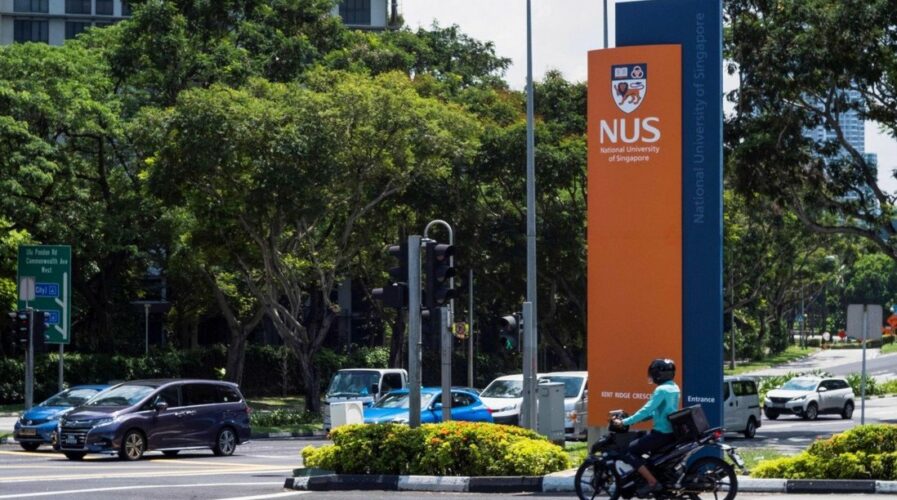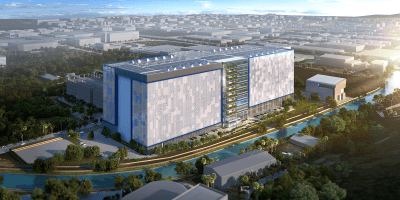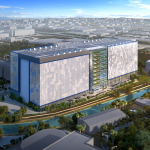
Singapore universities launch first-of-its-kind tropical data center testbed. Source:AFP
Singapore unis launch a “cool” testbed for data centers in the tropics
- Both NUS and NTU will collaborate to build a data center testbed by October 2021, under a new S$23 million research program.
- The Sustainable Tropical Data Centre Testbed (STDCT) will promote the co-creation and demonstration of advanced cooling technologies.
Of all the data centers in Southeast Asia, Singapore supplies about 60% of on-premise storage – consuming nearly 7% of the country’s total energy needs. That figure is projected to reach 12% by 2030, raising alarms about the need to reduce unsustainable power consumption in the city-state.
That is exactly the motivation behind the National University of Singapore (NUS) and Nanyang Technological University, Singapore (NTU), who are working together with key stakeholders in Singapore’s data center industry to lower the sector’s carbon footprint.
The rising digital economy has led to a growing demand for data centers that can house computing and data storage infrastructure. As computer servers generate a lot of heat, these data centers are currently air-cooled at temperatures between 23 and 27 degrees celsius, together with an ambient humidity of 50-60% as the industrial standard, according to the universities involved in the project.
Maintaining such controlled environments requires high energy consumption, resulting in high costs and significant carbon emissions, particularly for tropical countries like Singapore. Hence, to develop novel and more energy-efficient ways of cooling data centers in the tropics, a new S$23 million research program was announced by NUS and NTU.
The Sustainable Tropical Data Centre Testbed (STDCT), as it is called, will “promote the co-creation and demonstration of advanced cooling technologies”, the universities said in a joint press release.
The goal is to set up a testbed facility with “state-of-the-art” equipment at the NUS Kent Ridge campus and will be up and running by October this year. The program is being jointly funded by the National Research Foundation Singapore (NRF), a department under the Prime Minister’s Office, and Facebook, which is the anchor industry partner. Research at the STDCT will be co-led by researchers from the NUS, NTU, and industry partners such as Keppel Data Centres, with support from the relevant government agencies.
“Curated by the Cooling Energy Science and Technology Singapore (CoolestSG) Consortium hosted at NUS, this program will see researchers develop and demonstrate energy-efficient cooling technologies to achieve breakthroughs in the tropical data center environment,” the joint statement reads.
Mounting need for sustainable data centers
One area that researchers are examining is a ‘heat sink’ design with both air and liquid modes of cooling in a single integrated piece that eliminates the connectors and ducts. Led by NUS associate professor Lee Poh Seng, who is also the program director at STDCT, this “direct chip hybrid cooling” idea can be an alternative air-cooling solution during water-loop maintenance, helping to cut down server downtime.
Another approach, led by NTU’s Associate Professor Rui Tan, will test the possibility of air-cooling data centers at higher temperatures and relative humidity levels, to reduce energy consumption yet ensure the performance of the IT equipment. The combination of these technologies will enable a more energy-efficient cooling solution for buildings in a tropical climate that make use of ambient air that would otherwise be hot and humid.
When successfully developed and tested, a combination of the new cooling technologies being studied at the STDCT could help cut down energy consumption and greenhouse gas emissions by “up to 25%”, compared with data centers that are traditionally air-cooled. Meanwhile, and industry-wide adoption across the entire tropical region can also potentially cut the industry’s energy usage by “at least 40%”, the press release said.
In the longer term, the STDCT hopes to recommend operating guidelines and set new standards based on proven findings from its new technologies to enable greener data centers. Meanwhile, the facility itself will feature energy-efficient cooling solutions, such as the StatePoint Liquid Cooling System developed by Nortek Air Solutions and Facebook, which helps data centers to operate more efficiently in tropical locations.
READ MORE
- 3 Steps to Successfully Automate Copilot for Microsoft 365 Implementation
- Trustworthy AI – the Promise of Enterprise-Friendly Generative Machine Learning with Dell and NVIDIA
- Strategies for Democratizing GenAI
- The criticality of endpoint management in cybersecurity and operations
- Ethical AI: The renewed importance of safeguarding data and customer privacy in Generative AI applications


